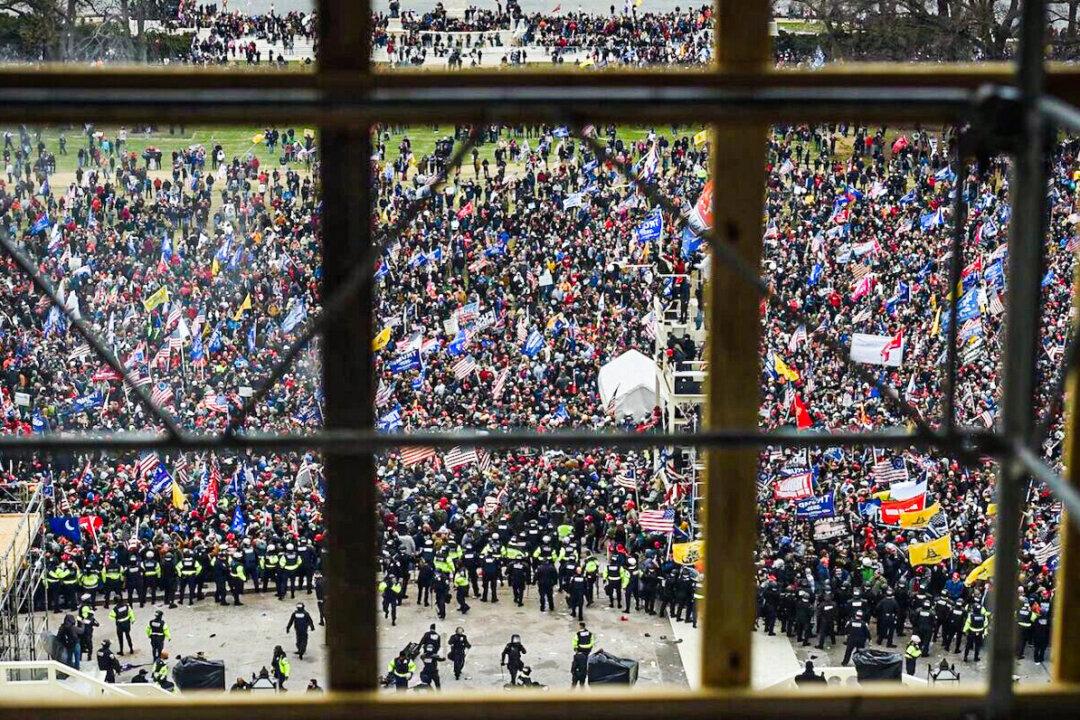A federal appeals court on Sept. 6 upheld an obstruction conviction for a former U.S. Capitol Police officer who told a man who went inside the Capitol on Jan. 6, 2021, to delete an incriminating Facebook post.
The conviction of obstructing the investigation into the Capitol breach will stand because Michael Riley, the former officer, did not provide evidence supporting his theory that government prosecutors failed to prove he intended to be obstructive when he advised Jacob Hiles, who breached the Capitol, to remove the post, a U.S. Court of Appeals for the District of Columbia Circuit panel said.





